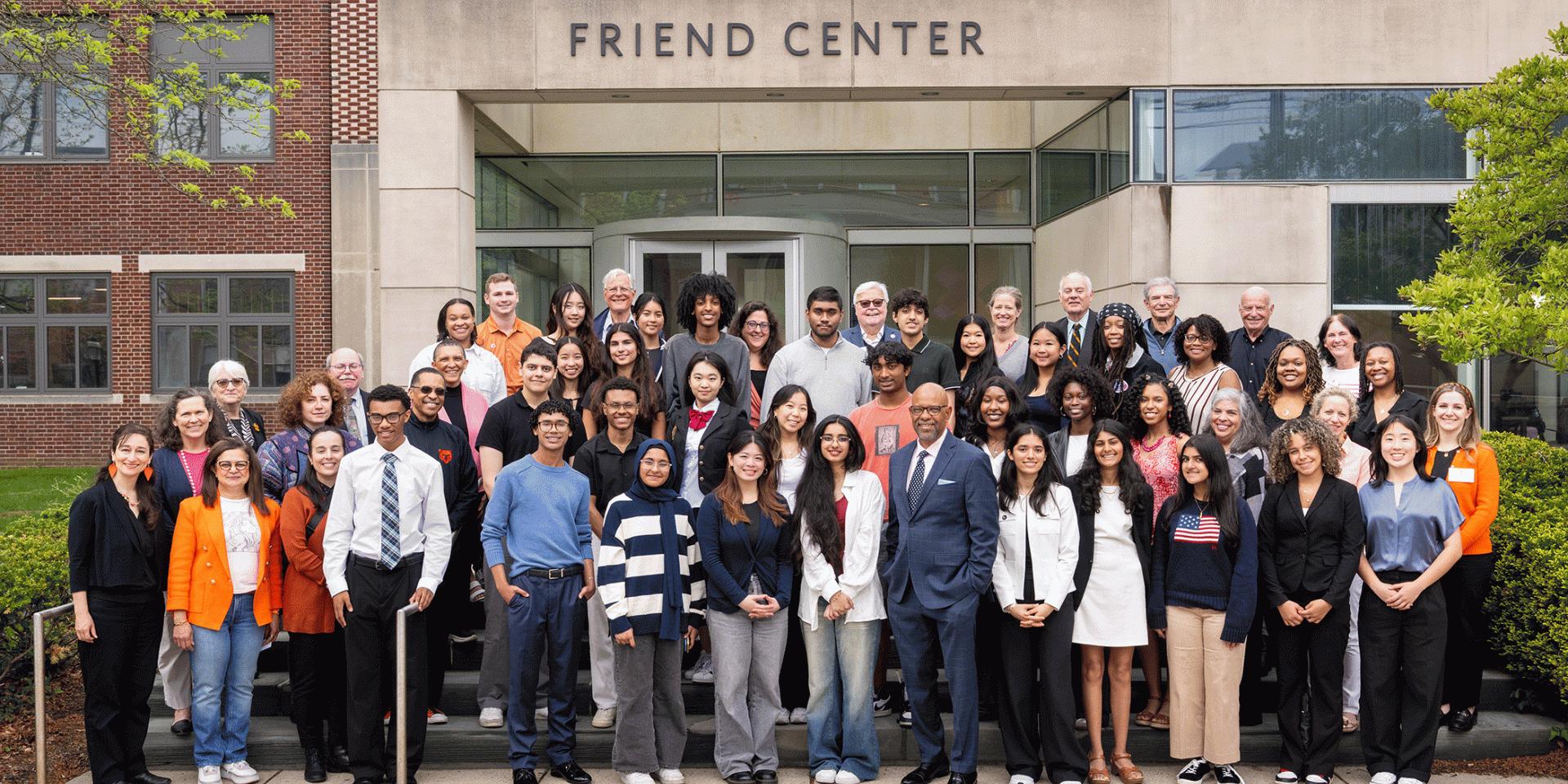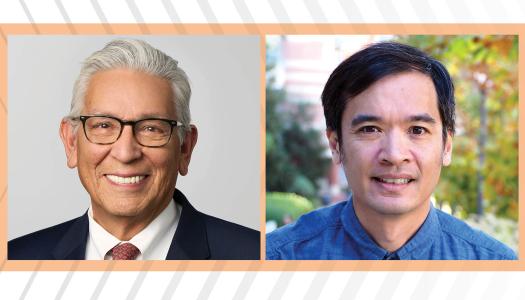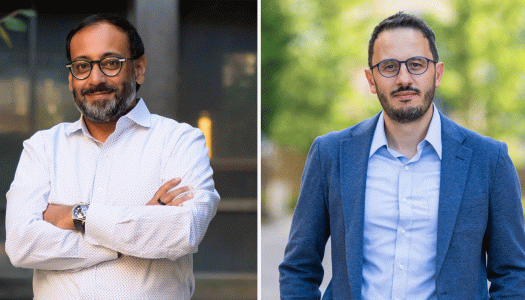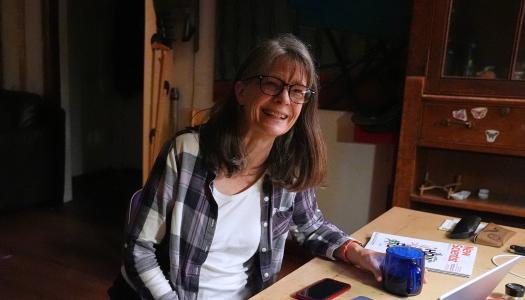Princeton University celebrated 33 Princeton Prize in Race Relations award recipients at the annual Princeton Prize Symposium on Race, held on campus April 25-26. Photo by Sameer Khan/Fotobuddy
Princeton University celebrated 33 Princeton Prize in Race Relations (PPRR) award recipients at the annual Princeton Prize Symposium on Race, held on campus April 25-26. Students arrived from across the country to present their award-winning projects, trade encouragement and ideas, talk with past prize winners and receive guidance from Princeton alumni.
PPRR, a Princeton-administered program created, advised and supported by alumni volunteers, recognizes high-school students who have demonstrated leadership with innovative projects promoting equity and racial understanding in their schools and communities.
“This is the most inspiring thing that I have done as an alum for the University, without question, because it shows hope and promise for the future,” said Gary King ’79, a member of the New York City regional PPRR committee. “If anybody has any questions about what comes in the future, join the Princeton Prize, talk to the high-school students and see that a better future is possible.”
Since its inception in 2003, Princeton has awarded the prize to more than 2,000 high-school students, who were selected by more than 400 regional alumni volunteers.
“It’s an absolute joy, and it brings a lot of meaning to my life, first and foremost because I get to meet such amazing young people and feel so deeply inspired by them,” said Daniella Cohen ’22, a symposium planning committee member and a 2013 winner of the prize. “The prize really opened the door. It took me to so many wonderful places.
“We’re all investing our time because we believe in this, and we see the connection between what Princeton values and what the Princeton Prize in Race Relations celebrates,” added Cohen, who now works with young entrepreneurs as an early-stage investor.
Prize recipients receive $2,500 (an increase from $1,000 previously) and an all-expenses-paid trip to campus to attend the symposium. It’s not a scholarship — students can use their award for future college expenses or projects or as they like.
“I think it serves the University’s motto, ‘In the Nation’s Service and the Service of Humanity,’” said Henry Von Kohorn ’66, who created the PPRR and rallied his Princeton class to support it. “You can view race relations as the biggest social issue that we have. Things come and go, but this is always with us. We’re hopefully building a generation of young people who, if we recognize them and say, ‘You’re doing the right thing,’ will continue that work through the rest of their lives, college and beyond.”
“We want to draw attention to and recognize kids who do community service-type work that might not get much glory,” added Shirleen Robinson ’95, PPRR regional chair of Connecticut.
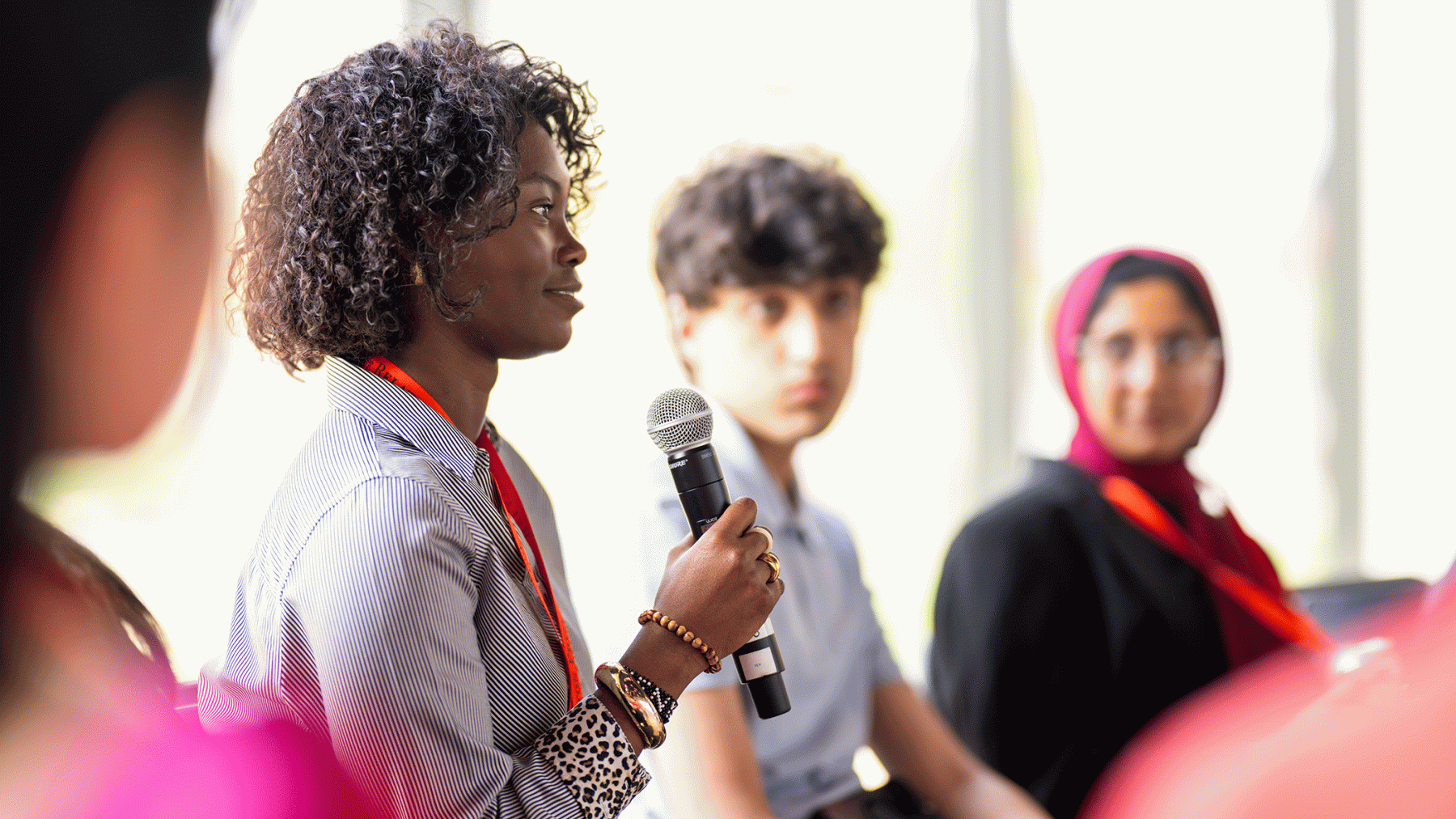
Student projects awarded the Princeton Prize this year addressed issues such as reducing disparities in access to health care and STEM education, widening school curricula to include underrepresented cultural histories, boosting awareness of bias in public policies and programs and improving the criminal justice system for youth. Prize recipients took the opportunity at the symposium to share their challenges, seek collaboration opportunities and learn from peers’ experiences.
“It’s so refreshing to be able to come to a space like this and be able to acknowledge how uncomfortable and rewarding racial relations can be,” said Ethan Gwinn, who founded his high school’s Multicultural Club, guided by the motto “One Class, Many Cultures,” in Mobile, Alabama. “It’s been very interesting to hear how other students are doing the same things and seeing the intersectionality between it all. I’ve just had an amazing time being here.”
“It’s great hearing from students who have already done it,” said Diamond Previlon, a senior who created a Black Student Union at her New Jersey school after incidents of racial discrimination. “It’s just very nice to know that you’re not alone.”
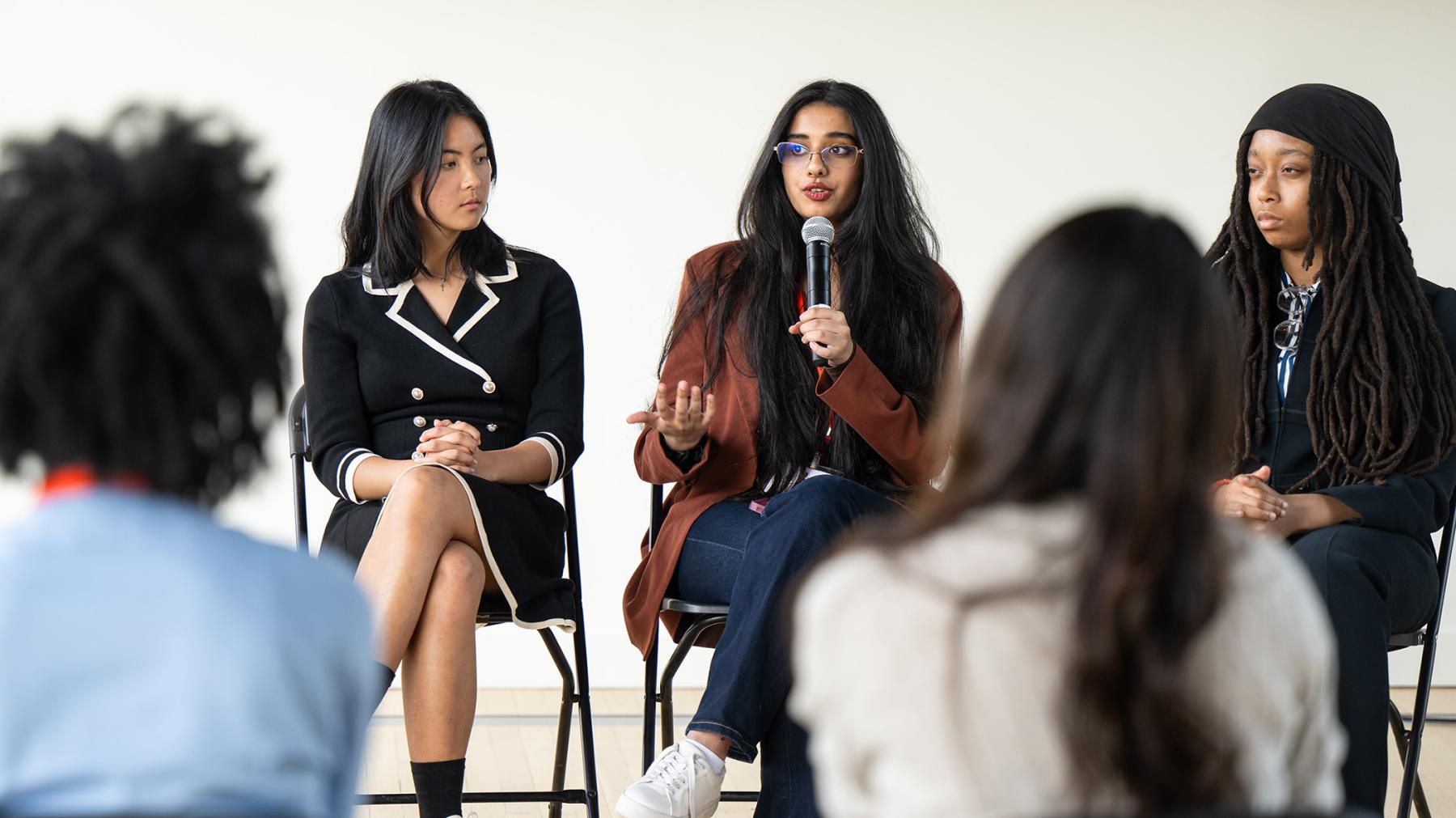
During the symposium, prize recipients interacted with current Princeton students and alumni on a number of topics, including tips on conducting public policy discussions and using social media to boost engagement. Many of the students are preparing to leave their hometowns for college, and they explored how they might translate their projects to new venues.
A session with Wendo Kimori and Sophia Roach, 2023 prize winners who now attend college elsewhere, focused on how students might continue their advocacy work after high school. “Do what you can do, and be ready to pivot and be tactful about the way to continue,” Kimori said.
In another session, prize recipients split into small groups to receive feedback from alumni on how to move their projects and other work forward. Cathleen Stone Joseph ’07 advised recipients to see what is needed where they land next — it may not be exactly what they did in high school, but their skills and passions will enable them to help others in new ways. Gary King encouraged the students to gather the expertise they build and take it back to their home schools and communities — to not leave those worlds behind.
“It renews my hope,” said Selah Hampton ’18, PPRR advisory council chair. “They’ve been doing such important work, often amongst a lot of dissent in their communities. They may be the only person — or part of a very small group — that is supportive of the work that they’re doing. So to find commonality and community here is one of the beautiful rewards of hosting this event.”
Short biographies of all the 2025 PPRR award winners are here. Students can apply here. School administrators or teachers can introduce the PPRR alumni advisory council to students here. Alumni who would like to help recognize students can email pprize@princeton.edu.
